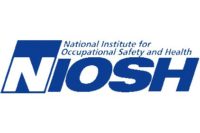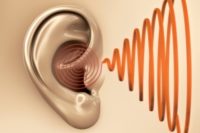Timothy Leary may get vindication yet, if a new research center at Johns Hopkins Medicine yields results. Leary, a Harvard psychologist and 1960s counter culture figure, came under intense criticism for advocating the therapeutic use of psychedelic drugs like Lysergic acid diethylamide – otherwise known as LSD.
Now, Johns Hopkins Medicine plans to create a Center for Psychedelic and Consciousness Research to explore the use of psychedelics for therapies and wellness.
Psychedelics are a class of drugs that produce unique and profound changes of consciousness over the course of several hours. Much of the early work at Johns Hopkins has focused on psilocybin, the chemical found in so-called magic mushrooms.
Alzheimer's, opioid addiction could be treated
The center will focus on how psychedelics affect behavior, brain function, learning and memory, the brain’s biology and mood. Studies of psilocybin in patients will determine its effectiveness as a new therapy for opioid addiction, Alzheimer's disease, post-traumatic stress disorder (PTSD), post-treatment Lyme disease syndrome (formerly known as chronic Lyme disease), anorexia nervosa and alcohol use in people with major depression. The researchers hope to create precision medicine treatments tailored to individual patients’ specific needs.
The center will provide support for a team of six faculty neuroscientists, experimental psychologists and clinicians with expertise in psychedelic science, as well as five postdoctoral scientists.
Private donors
In the absence of federal funding for such research, the center will rely on private donors for its founding first five years of operating expenses.
Donors include the Steven & Alexandra Cohen Foundation and four philanthropists: Tim Ferriss (author and technology investor), Matt Mullenweg (co-founder of WordPress), Blake Mycoskie (founder of TOMS, a shoe and accessory brand) and Craig Nerenberg (investor).
“We have to take braver and bolder steps if we want to help those suffering from chronic illness, addiction and mental health challenges,” says Alex Cohen, president, Steven & Alexandra Cohen Foundation. “By investing in the Johns Hopkins center, we are investing in the hope that researchers will keep proving the benefits of psychedelics — and people will have new ways to heal.”
The center’s faculty will train graduate and medical students who want to pursue careers in psychedelic science, where there have historically been few avenues for career advancement.
History of psychedelic research
In 2000, the psychedelic research group at Johns Hopkins was the first to achieve regulatory approval in the U.S. to reinitiate research with psychedelics in healthy volunteers who had never used a psychedelic. Their 2006 publication on the safety and enduring positive effects of a single dose of psilocybin sparked a renewal of psychedelic research worldwide.
Since then, the researchers have published studies in more than 60 peer-reviewed journal articles. Their research has demonstrated therapeutic benefits for people who suffer from conditions including nicotine addiction, and depression/anxiety caused by life-threatening diseases such as cancer. It has paved the way for current studies on treatment of major depressive disorder. They have also led the field by publishing safety guidelines that have helped gain approval for psychedelic studies at other universities around the world, and by developing new ways to measure mystical and emotionally challenging experiences while under the influence of psychedelics. Their research also explores the interaction of psilocybin and meditation.
The group’s findings on both the promise and the risks of psilocybin helped create a path forward for its potential medical approval and reclassification from a Schedule I drug, the most restrictive federal government category, to a more appropriate level. Psilocybin was classified as Schedule I during the Nixon administration, but research over the last decade has shown psilocybin to have low toxicity and abuse potential.






